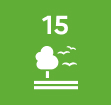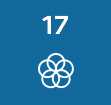Share the page
Sustainably financing conservation in Cameroon's Deng Deng National Park
Project


-
Project start date
-
Status
Completed
-
Estimated date of project termination
-
-
Project financing date
-
-
Financing duration
-
4 Years
-
Type of program
-
FFEM
-
Global financing amount
-
€ 5050100
-
FFEM financing amount
-
€ 990000
-
Project lead member institution(s)
-
AFD
-
Country and region
-
Cameroon
-
Location
-
Cameroun
-
Type of financing
-
Beneficiaries
-
Electricity Development Corporation (EDC)


In Cameroon, Deng Deng National Park has been established to protect the great ape populations. To ensure its long-term financing, part of the water rights generated by the Lom Pangar hydro-electric dam will be returned to the park. The FFEM has been supporting the park during the design and roll-out of this innovative mechanism.
Context
Established in 2010 to offset the impacts of the Chad-Cameroon oil pipeline and the Lom-Pangar hydro-electric dam, Deng Deng National Park in Cameroon provides a home for endangered gorilla and chimpanzee populations. In the absence of a buffer zone, there is great pressure from poaching which is aggravated by weak management and a lack of financing.
Operation of the Lom Pangar dam should generate payment of water rights, a proportion of which will be returned to the National Park for its conservation work. This pilot project is seen as a model for public-private partnerships (PPP), benefiting the protected areas across the country. The FFEM contributes to this initiative by supporting both the Park and the State company that owns the dam, Electricity Development Corporation (EDC), as they deliver this concept of allocating a portion of the water rights, while providing them with the appropriate institutional framework.
Description
The project comprises four elements:
- Providing the legal and operational PPP mechanism between State and EDC, by training and educating the institutional actors and identifying an operator to run the National Park.
- Delivering the infrastructure investment needed to run the Park properly.
- Improving the Park surveillance systems and installing a system to monitor pressure points and the impact on biodiversity.
- Developing and deploying a communications strategy to initiate relations between the key partners (NGOs, private operators, experts, regional institutions), and preparing financial audits and project assessments.
Impacts
- Implementing systems for the effective management and sustainable financing of Deng Deng National Park.
- Preserving the biodiversity and ecosystem services provided by the Park.
- Ensuring transparent management of the income stream from the water rights from the Lom Pangar hydro-electric dam.
Innovative and exemplary features
Still heavily dependent on public development aid, conservation suffers from a lack of long-term financing in Cameroon and, more generally throughout central Africa. This is why financing the management of Deng Deng National Park through water rights generated by the hydro-electric dam is such an innovative solution. The model developed within the framework of this project can be replicated outside Cameroon, and is already creating interest among the owners of another dam project in the country.
The project is also pioneering in the way the governance model brings together the State and a private partner. This will be Cameroon‘s first PPP for conservation.
Sustainable Development Goals
ODD15 Life on land

ODD17 Partnerships for the goals



